“It’s a very personal story about coming to terms with a whole lifetime of guilt and difficulty”: Terry Loane and Katy Jackson on The Last Rifleman at Belfast Film Festival
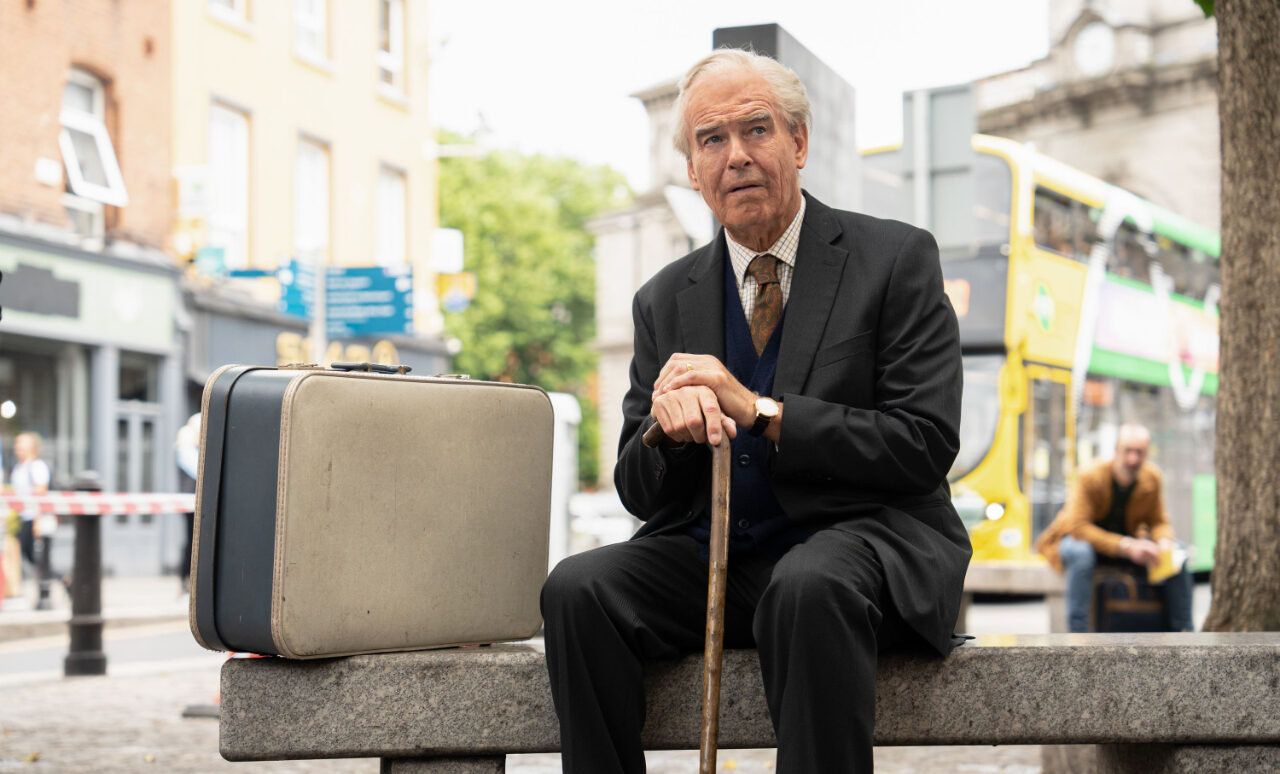
The Last Rifleman, slightly inspired by the Bernard Jordan story – a veteran who escaped his elderly people’s home for the anniversary of D-Day – stars Pierce Brosnan as 92-year-old Artie Crawford. The script by Kevin Fitzpatrick takes plenty of liberty with the anecdotal story and instead focuses on Artie as the last living veteran of his regiment, hence the title. He leaves his nursing home, expired passport and all, to travel across Ireland and cross the waters to France for the 75th D-Day anniversary and deliver one last letter to his best friend Charlie. Along the way, he meets many different people who help him out on his journey.
Directed by Terry Loane, the film was shot in Belfast and France and surrounded Brosnan with a diverse cast that showcased local Irish talent as well European stars Clémence Poésy and Jürgen Prochnow. Aside from Jordan, The Last Rifleman also takes inspiration from the documentary We Fought on D-Day wherein rare archival footage showcases the untold stories of Northern Irish soldiers who fought during the Second World War. The documentary also features interviews and personal stories that really touched Brosnan and prepared him for the role of Artie. The Upcoming caught up with Loane and producer Katy Jackson to talk about the script, filming in Northern Ireland and the full-circle premiere of the film at the Belfast Film Festival.
Please briefly introduce what The Last Rifleman is about and what audiences can expect from it.
Terry Loane: Kevin Fitzpatrick – our wonderful writer – a number of years ago, he saw a documentary where they interviewed a lot of veterans from the Second World War and a lot of local Irish veterans. They told some very heartwarming stories. That inspired him to write a story about a fictional veteran, kind of also inspired by the recent story of Bernard Jordan who left his old people’s home and went to Normandy. Kevin combined those two wonderful ideas and has written the most beautiful story about our veteran who for very personal reasons, decides to go back to Normandy for the first time in 75 years. The last time he was there, he was a 17-year-old boy and had a very traumatic time.
Katy Jackson: The first time I heard the story, it was actually mesmerising. It was an ambition to do this sort of film about veterans from the Second World War or the First World War. This one was just such an amazing story and we knew it was going to be difficult to put the finance together for a film like this. But we just thought we’ve got to forge ahead here. I tentatively asked Terry – didn’t think he would be interested. But he immediately came back.
TL: As a director, if you read something you haven’t read before and know nothing about it, and if it does hit you – and it did make me cry. It’s only words on a page. But when you realise what those words on a page can then do if you cast it correctly and if you get to tell a story that do justice to those words – it’s an exciting journey. It’s a challenge and a daunting task, but I knew there was something important about those words on that page.
How did you guys come about working with Pierce Brosnan for the film? Did he audition or did you pitch the film to him?
KJ: That was Terry’s story because he had known Pierce previously. Then we kind of talked about it and thought Pierce would be a really good choice for this film. Terry was able to approach Pierce in the first instance directly and then we went through his agent. But Terry chose Pierce because, well – he was just an obvious choice.
TL: The great thing about Pierce is he values his Irishness. It’s very important to him even though he had a lot of his childhood in England and his life in America. I was lucky that he had seen the first film I did, which was a number of years ago, and was a fan. Both of us had committed that we wanted to work together. When this landed, he came back to me after a couple of days and said, “Let’s do this.” It’s not a typical Pierce role. We’ve seen him be brilliant with a gun and a sexy suit; he’s amazing on camera and on-screen. But this was something he hadn’t done before and the challenge of playing an older character for him was very interesting. We were lucky enough that he just jumped at the chance.
KJ: He embraced it. He really inhabited the role from beginning to end. Even when you see him through our EPK footage – which is outside the filming of the script – you can see he’s just walking with his stick the whole time. He became Artie, he did the accent fantastically and it’s not an easy accent. When we saw him in his own clothes, sometimes at the end of the evening, it was a shock. We were all just used to him being Artie.
How much research did you and Pierce do on the Bernard Jordan story and the Second World War?
TL: Well, we shared all the research material we had because as I said, Kevin watched the documentary We Fought on D-Day. I sent that to Pierce along with the script and a short film that we did. I know Pierce was hugely moved by the personal stories in that documentary. The Bernard Jordan story, we’ve used it as inspiration but we’re not telling his story. We’ve created a Northern Irish veteran from a particularly local regiment. That’s the story that Kevin has created. Bernard Jordan is a little springboard element of our story, and our story is a very personal journey. I think in that regard, that’s what I loved about it – it’s something anybody can watch. You don’t have to be a fan of war films or a fan of veteran stories. It’s a very personal story about coming to terms with a whole lifetime of guilt and difficulty.
KJ: And very much like the script, every time we see the film, it does make us cry. It does hit you emotionally in the heart. Normally by this time, [when] we’ve gone through the whole editing process, the filming process, the trying to get the money together, putting the actors together, trying to get everybody to the first day of production – at the same time, we had to go through Covid-19 as well on this occasion. It was incredibly difficult – normally by that stage, there’s not a lot a film can bring to make us cry. But this time, every time, Pierce’s performance is just spot-on perfect. It’s just a beautiful performance.
You guys obviously have a very high regard for the script, but did you have to do any rewrites with Kevin or were there any changes you had to make during filming?
TL: We did have an unusual encounter where one of our actors, John Amos, who came over from the States, at very short notice had… an illness. John was into our story but unfortunately, after one day of filming, he became ill. At this stage, we just had a short number of days left to film, including the week in France that we had to go off to. We had a crazy 12 hours where we were filming scenes and in between takes, I was rewriting for the next day where we had to chunk a whole of that character’s story and morph it into a completely different character who was already in our story. We had to check he was available to come to France, give him the new scenes, give Pierce the new scenes, and somehow, it worked! The film gods were smiling at us even though they slapped us quite hard a number of times, and kicked us when were down. But when we got back up, they kind of surprised us. Because of the order of filming, we were lucky enough to make those changes. Kevin was fully on board with that kind of thing. He just knows once you’re in the trenches of making a film, you’ve got to keep on going and going, and compromises need to take place.
KJ: When John Amos recovered, it was probably a week after filming. We were able to get out again and film the end of his scenes, which was wonderful. He was just amazing, he did a fantastic job, and he wasn’t going to let us not film any of his scenes; he so wanted to be a part of the film. I think his father had a big part in the US Army during the Second World War. That was very much part of his inspiration for wanting to do the film. Clémence Poésy, I think her uncle was part of the resistance in France. They’ve all got a reason for doing the script. Everybody had a story to tell about somebody from their family who had been involved in the Second World War in some way or another. I think it means a lot to the cast and the crew.
And the casting for this script, how did you choose the right people who can help uplift Pierce’s charismatic presence without being completely overshadowed by him?
TL: I suppose Katy and I have always known – because we’ve been around quite a bit – that there’s such a great wealth of talent here in Northern Ireland, in Ireland and the surrounding islands. But especially locally. We know so many actors who we’ve worked with before. Because we had a clear focus with our casting team, Carla Stronge and Mike Hooley – they worked themselves silly because we had a lot of speaking parts in this film. Some of them are French and some of them are other different nationalities. We were very focused on casting the Northern Irish characters locally and casting the European characters internationally. It doesn’t help the budget but it helps the authenticity onscreen. The joy is that if we say, “Well, Pierce is playing the lead,” most actors would definitely want to be part of it very quickly, or even consider it. Even if they have only one scene with him or one day on set, they identified with the script and they knew they were going to be part of a film that gets out into the world and has something important to say.
KJ: Because it’s a road movie, every single character had a little bit of a scene with Pierce. That was lovely for them. People could’ve been over-awed but in actual fact, I think they all came out with very distinctive characters. At the end of the film, you could kind of remember every single one, which is a great credit to all the actors that played with Pierce.
You filmed in Belfast last year – is that ingrained into the script that the story takes place in Belfast? Why did you want to film here?
TL: The story begins just outside Belfast, probably Lisburn – a town outside Belfast – in the elderly people’s home. For economic reasons, you try and shoot as much as you can close to the unit base, close to the production. Because it was a road movie, as Katy mentioned, we had to shoot some stuff in Dublin and we had to make sure it felt like Dublin. The other parts when we get to France – some things you can’t double. For instance, there’s a scene in France – spoiler: he gets to France! – that is set in a village on the anniversary of D-Day, which is like Mardi Gras. It’s a crazy atmosphere in reality. We couldn’t shoot all of that in France, so in the town of Antrim – which is 20 miles outside of Belfast – the art department did an amazing job and we recreated a whole street in Antrim. Antrim doesn’t look like France but every shop front, every piece of signage, every prop just transformed it. Then we shot tiny little bits in France and we cut it all together in post and it all worked so beautifully. The magic, of course, in film is you can shoot things around the corner and make them look like they’re halfway around the world. Again, because we know most of the locations – we had a great locations team on this who found us some unusual places.
KJ: People were also very cooperative because they all just loved the idea of the story. We had the support of amazing veterans who came out to film a small scene with us. A local band came out with pipes and drums and would perform for us. That was all very moving on the day that we filmed that scene.
You filmed in Belfast last year and now you get to premiere the film here at the Belfast Film Festival. What’s that entire full-circle journey of this film in this city like?
TL: It’s kind of surreal because it is a long journey. We started post-production back in August of last year so it has been 14 months. We feel confident in that we know we’ve made a film that’s moving and is a successful movie. There are a hundred reasons why a film doesn’t work even if you’ve got a great script, cast and crew. We feel we’ve made something strong and I’m kind of excited to show it to the cast and crew. But also, to the big audience – to show, and for the wider audience to see, a performance nobody would expect from Pierce. It’s really quite special. The post-production process was very like – my friends would say, “You haven’t finished that film yet!” And I’m like, “Well, we’ve got another six months to go.” Because every little beat, every little moment – you’ve got a great editor, a great composer, and the sound design. All that takes a long time in any film, but this is kind of a smallish film with a very big ambition and a big heart. We wanted to make sure that it was just spot on.
KJ: We go on a journey through filming and post-production, and we see all the various stages of change to the original script. We know why we’ve made those changes so it’ll be interesting to see what people think – those who have just seen the filming process, or just read the script. Because a lot of changes are made along the way, and we think it’s worked, but we have got to see what everybody else thinks.
As Irish directors, writers and producers, what advice would you give young aspiring filmmakers who hope to get into the industry but are discouraged by thinking Hollywood’s the only way in or who assume that opportunities are limited here in Northern Ireland?
KJ: I think there are almost more opportunities here because we have a wonderful film board: Northern Ireland Screen. They provide great opportunities for first-time filmmakers, they have lots of schemes: they have a New Talent Focus scheme, and in actual fact, this script which is Kevin Fitzpatrick’s first feature script, he developed it through one of Northern Ireland Screen’s schemes. He was one of the New Talent Focus people and it just so happens that the film was made and financed. But it’s just persistence, really. Just keep it going.
TL: We don’t have a disadvantage here anymore because there have been big, big TV shows and a lot of feature films and a lot of experienced crew. Northern Ireland Screen are there to support from the early stage of the career right the way through to supporting the end of a project. So, yeah – I think we have a lot of advantages here, which is why productions just keep coming in from the outside. The indigenous voice and the independent productions are coming up thick and fast. It’s not easy anywhere, and like Pierce – when you can wrap your small film around a big name – it does help people pay attention to it and take it seriously. That’s one of the hardest things. Because you can make a beautiful film, but if it’s a lot of cast that people [don’t recognise], getting it out into the world is much, much harder. It’s a balancing act, and I think the thing you can often say to filmmakers is, if you’ve got any other job that you can do, it’ll probably be easier. But if you’re driven to want to make films – this is not a bad place to do it. Also, you can get to London easily. You can go to America if you want. But it’ll be just as competitive, if not worse.
KJ: There’ll be a lot more people out there and you won’t have as much support – certainly in the early days. You just have to get out there and make contacts. A good script is the best route because you are going to attract actors who are going to help you get it made.
TL: It comes back to the script, that’s one of the things. The best thing is to be passionate about what you do. Anybody can write 100 pages of words but writing and rewriting and making a script the best it can be is a painstaking process. But it’s really important.
Mae Trumata
The Last Rifleman is released on Sky on 5th November 2023.
Watch the trailer for The Last Rifleman here:


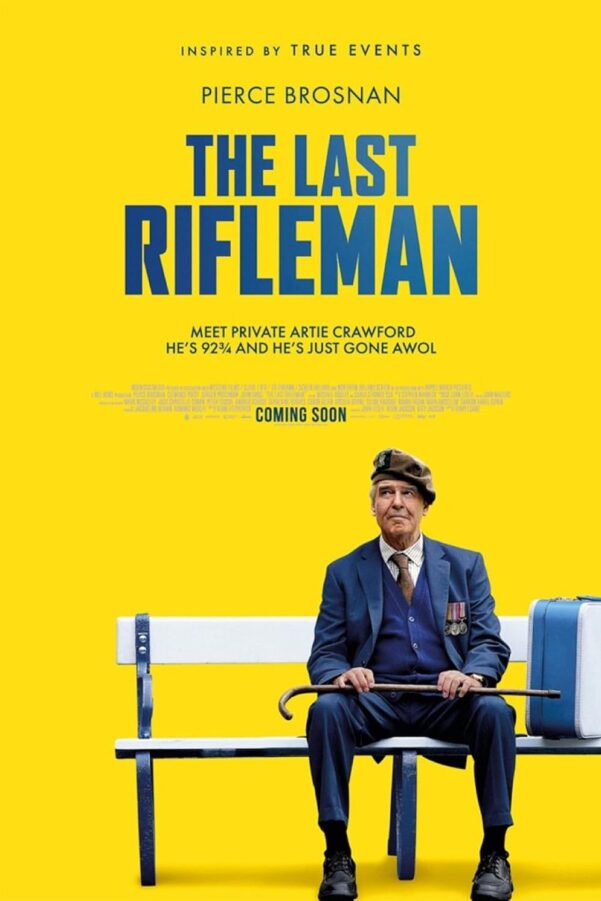

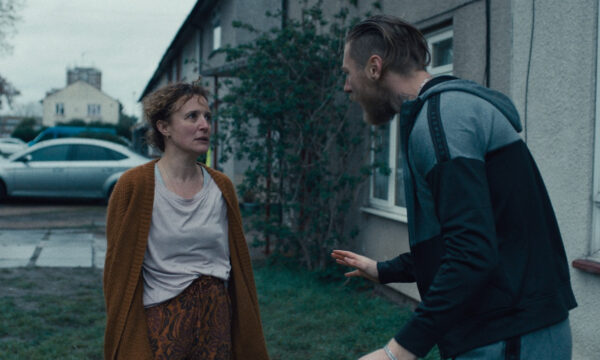

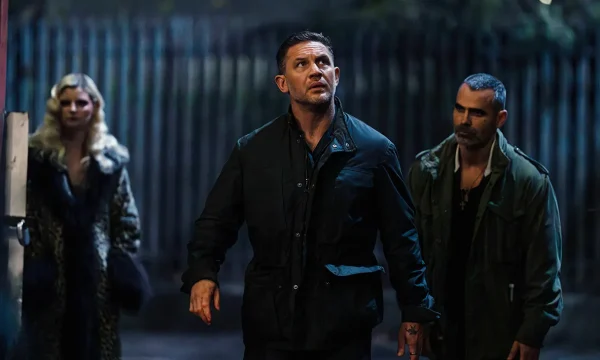
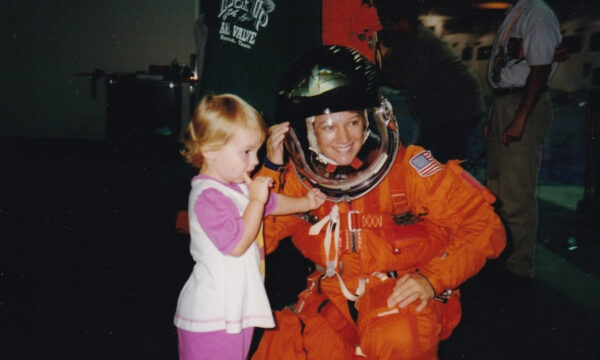
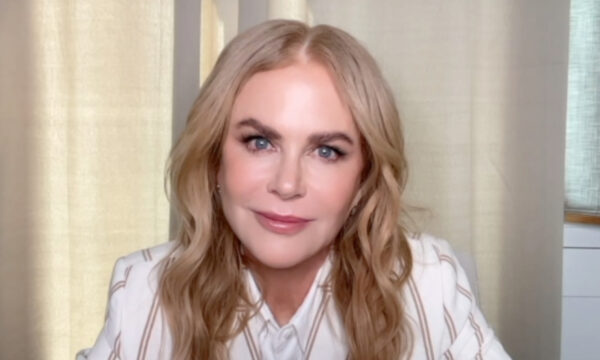
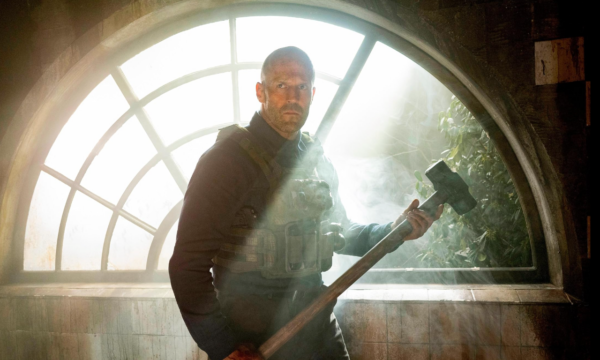
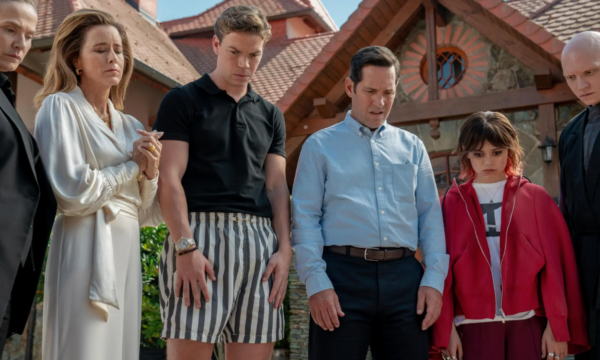









Facebook
Twitter
Instagram
YouTube
RSS